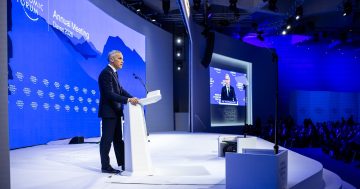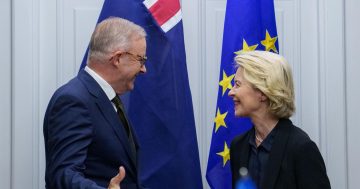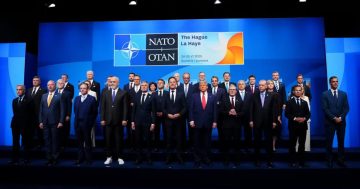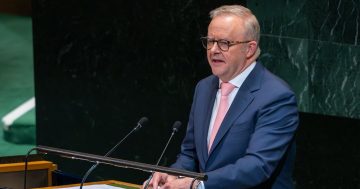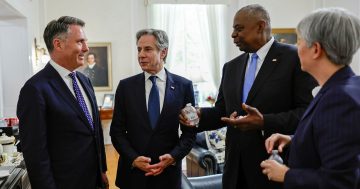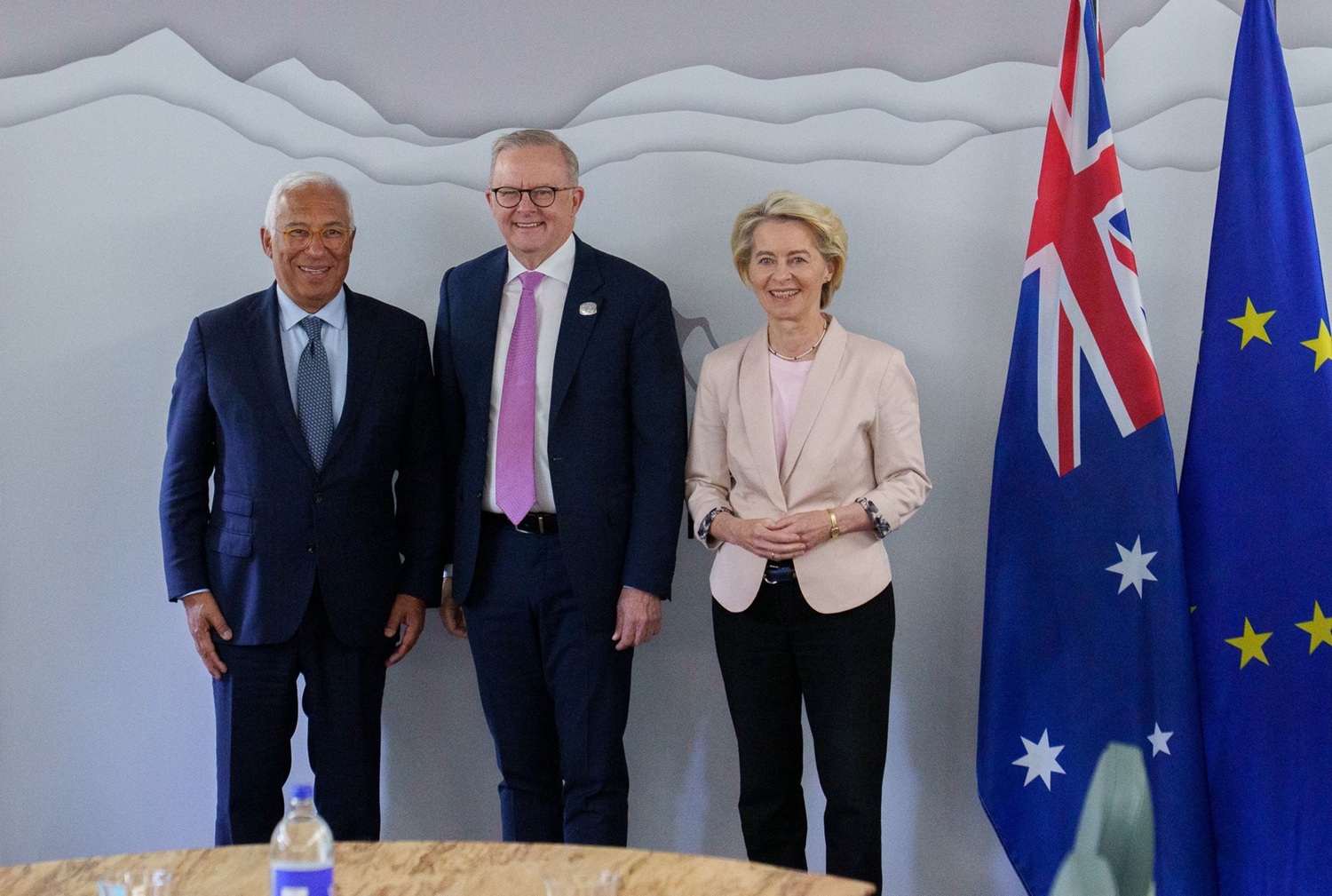
Mr Albanese (centre) with European Commission president Ursula von der Leyen and European Council president Antonio Costa at the G7 forum in Canada. Photo: Anthony Albanese Facebook.
Even if you’re not a member of the Group of Seven (G7) nations, the advantage for other world leaders who attend the annual economic forum is that many of their key trading and security partners are in the same place at the same time.
So, in a ‘’speed dating’’-like arrangement, non-G7 leaders such as Australian Prime Minister Anthony Albanese and the delegations they bring with them have taken the opportunity to connect or reconnect with their international counterparts to discuss trade, security, defence, climate change, and other global issues.
Mr Albanese had hoped to meet with US President Donald Trump to discuss trade and tariffs, defence funding, and the future of AUKUS. But Mr Trump left the meeting early, supposedly to attend to other issues such as the growing crisis between Israel and Iran.
Fortunately, the trip to Canada wasn’t in vain.
Perhaps because of the uncertainty surrounding alliances with the US and the unpredictability of the Trump Administration, Mr Albanese met with European Commission president Ursula von der Leyen and European Council president Antonio Costa last week on the sidelines of the G7 to negotiate a Security and Defence Partnership (SDP).
The Prime Minister said the partnership was designed to provide a framework for current and future cooperation in domains such as defence industry, cyber defence, and counterterrorism.
He added that existing SDPs the EU had with other countries included cooperation on countering hybrid threats, maritime security, non-proliferation and disarmament, space, and economic security.
“I am pleased to announce we’re stepping up our cooperation with the European Union today,” Mr Albanese said. “We see how deeply connected Europe’s security and the Indo-Pacific region have become.
“I very much welcome the EU’s offer for a Security and Defence Partnership and Australia will warmly take it up and commence work immediately.
“This will open the door to joint defence procurement opportunities and will benefit both our industries and our security.
“At a time of global uncertainty, it is our collective responsibility to work together to uphold peace, security and economic prosperity.
“That is what I will continue to do every day and that has been a key takeout of our work here at the G7 today.”
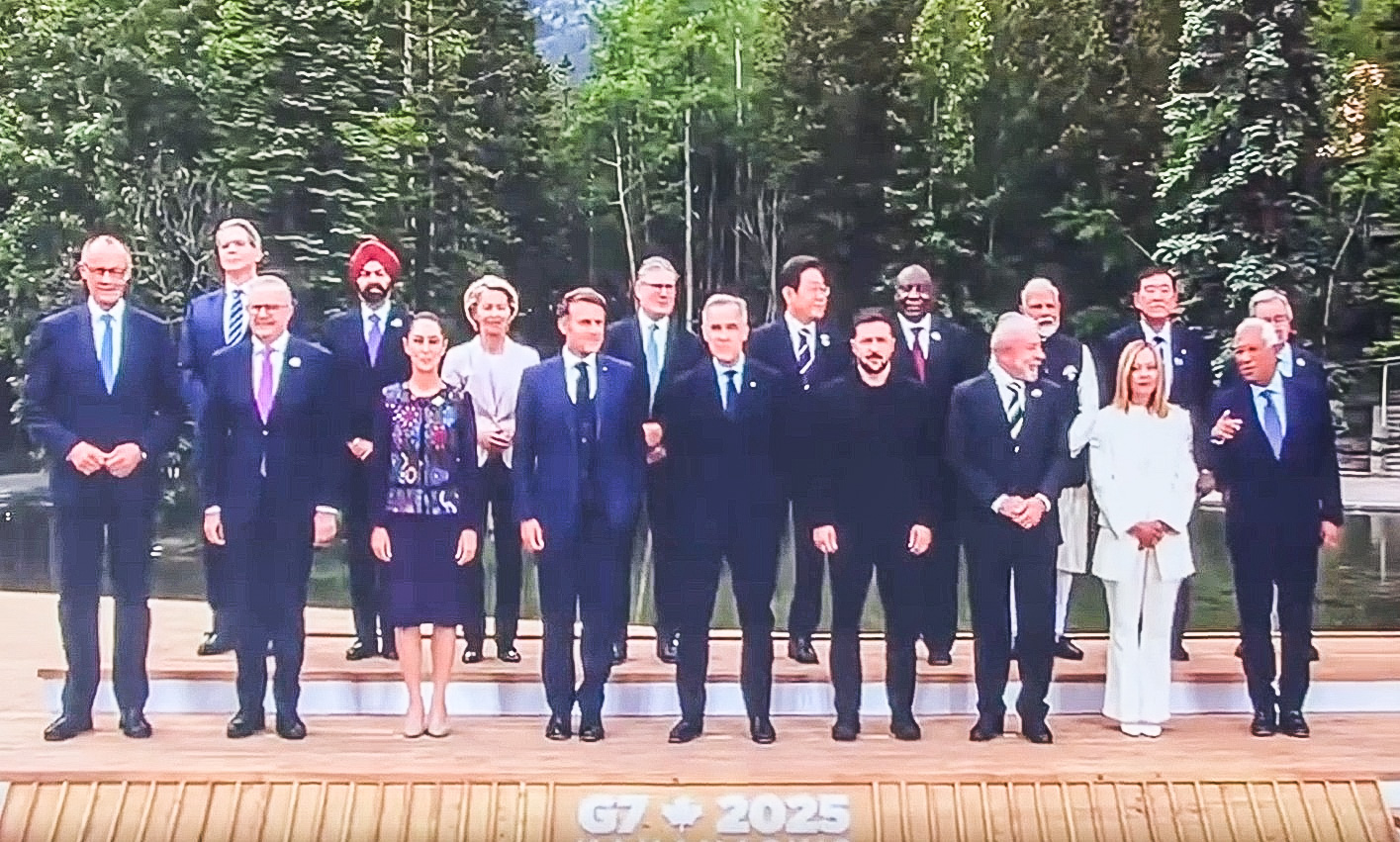
Mr Albanese (front, second from left) with G7, EU and other senior world leaders at the G7 forum in Canada. Photo: Screenshot.
EU countries have increased their presence in the Indo-Pacific in recent years, with Germany and France in particular sending combat aircraft and major naval units to the region to join multinational exercises and deployments.
Similarly, despite the majority of Australia’s defence equipment being sourced from the US, European nations still offer world-leading capabilities in missile technologies; space systems; electronic warfare; cyber; undersea warfare; intelligence, surveillance and reconnaissance (ISR) systems; and in the design and manufacture of advanced warships and submarines.
Ms von der Leyen said trusted partners must stand together in times of rising tensions and strategic competition.
“Europe and Australia’s enduring friendship enters a new chapter today,” she said.
“Recognising the shared security of Europe and the Indo-Pacific, we are launching talks on a Security and Defence Partnership.
“We’re also committed to advancing free-trade negotiations – because economic security matters too.”
Mr Costa described Australia as an important partner of the EU.
“We share the same values and a strong commitment to multilateralism and the rules-based global order,” he said.
“Europe’s and the Indo-Pacific’s regions are connected.
“Opening negotiations on a Security and Defence Partnership opens new opportunities to further strengthen our cooperation.”


